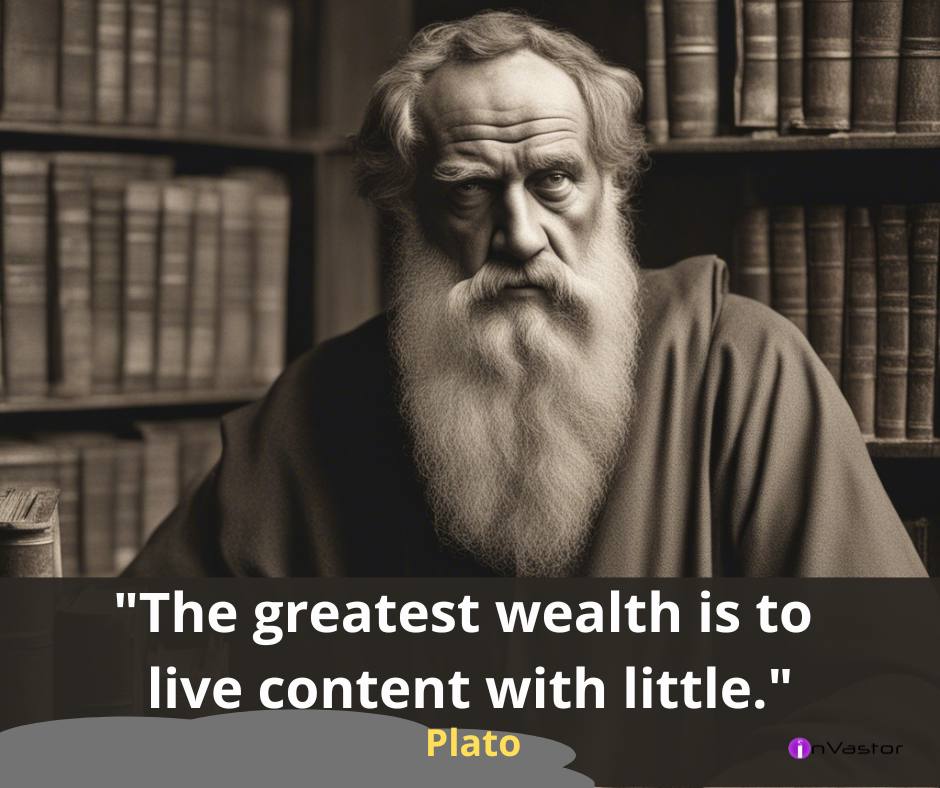

"The greatest wealth is to live content with little." - What did Plato mean with this famous saying?
Plato, the ancient Greek philosopher, believed that true wealth lies not in material possessions, but in being content with what one has. In his famous saying, "The greatest wealth is to live content with little," Plato emphasizes the importance of finding satisfaction and fulfillment in life without relying on external wealth or possessions.
Plato's message can be interpreted in multiple ways. One interpretation is that true wealth is measured by one's inner state of contentment, rather than the accumulation of material goods. In a society driven by consumerism and the constant pursuit of more, Plato suggests that finding contentment with what we already have is the key to true happiness and fulfillment.
For example, imagine two individuals: one who constantly desires more wealth and possessions, always feeling a sense of lack and dissatisfaction, and another who is content with their modest lifestyle, finding joy in simple pleasures. According to Plato, the latter individual is truly wealthy, as they have achieved contentment without the need for excessive material possessions.
Plato's saying also highlights the dangers of equating wealth solely with material abundance. In a materialistic society, it is easy to believe that possessing more will bring greater happiness. However, Plato argues that this pursuit of external wealth can lead to a perpetual cycle of desire and dissatisfaction, preventing individuals from ever truly feeling content.
References:
- Plato, "Phaedrus," The Dialogues of Plato, translated by Benjamin Jowett, 1892.
- Plato, "Republic," The Dialogues of Plato, translated by Benjamin Jowett, 1892.
Related Posts
© 2025 Invastor. All Rights Reserved

User Comments